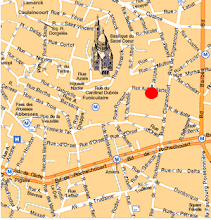Monday 21 July 2008
WTO: Farming exporters tell rich nations to open agriculture markets
GENEVA: Developing countries and food exporters from rich and poor nations on Sunday demanded that the United States and European Union open their farm markets and eliminate trade-distorting subsidies.
Trade in farm products was at the center of discussions as ministers from three dozen trading powers met in negotiating alliances to prepare for next week's make-or-break talks on a new world trade pact.
Pascal Lamy, the World Trade Organization director-general, called the ministers to Geneva to seek a breakthrough in the seven-year-old Doha round to free up world trade. The various alliances among the WTO's 152 members, from the Cairns group of food exporters to the African, Caribbean and Pacific countries met Sunday to plot strategy.
"Those members responsible for the most significant distortions in global agricultural trade - the EU, U.S. and Japan - bear a heavy responsibility," the Cairns Group of agricultural exporters, which includes Canada, New Zealand, Argentina, South Africa and Thailand, said in a statement. "We can and must now seize this opportunity to secure the main parameters of the Doha round. The costs of failure are too high."
Australia, which is serving as leader of the group, said the prospects of a Doha deal were better than ever.
http://www.iht.com/articles/2008/07/20/business/20wtofw.php
www.aplaceintheauvergne.blogspot.com
Trade in farm products was at the center of discussions as ministers from three dozen trading powers met in negotiating alliances to prepare for next week's make-or-break talks on a new world trade pact.
Pascal Lamy, the World Trade Organization director-general, called the ministers to Geneva to seek a breakthrough in the seven-year-old Doha round to free up world trade. The various alliances among the WTO's 152 members, from the Cairns group of food exporters to the African, Caribbean and Pacific countries met Sunday to plot strategy.
"Those members responsible for the most significant distortions in global agricultural trade - the EU, U.S. and Japan - bear a heavy responsibility," the Cairns Group of agricultural exporters, which includes Canada, New Zealand, Argentina, South Africa and Thailand, said in a statement. "We can and must now seize this opportunity to secure the main parameters of the Doha round. The costs of failure are too high."
Australia, which is serving as leader of the group, said the prospects of a Doha deal were better than ever.
http://www.iht.com/articles/2008/07/20/business/20wtofw.php
www.aplaceintheauvergne.blogspot.com
Labels:
Doha
Subscribe to:
Post Comments (Atom)





















1 comment:
There needs to be joined-up thinking in development of WTO agreements. The impact of policies on food security shows that human rights norms that have already been agreed are not being respected. The WTO and other International Governmental Organisations, such as the World Bank and International Monetary Fund, arguably have a responsibility in international law (through their member states) to respect these norms. Current case studies from Cambodia and Haiti show how this has not happened. There is a danger that WTO will once again ignore human rights obligations as nations put their own economic interests first. For further information on this and the Simultaneous Policy campaign, which aims to overcome the fear of economic disadvantage, see:http://globaljusticeideas.blogspot.com/2008/07/cambodia-haiti-food-security.html
Post a Comment